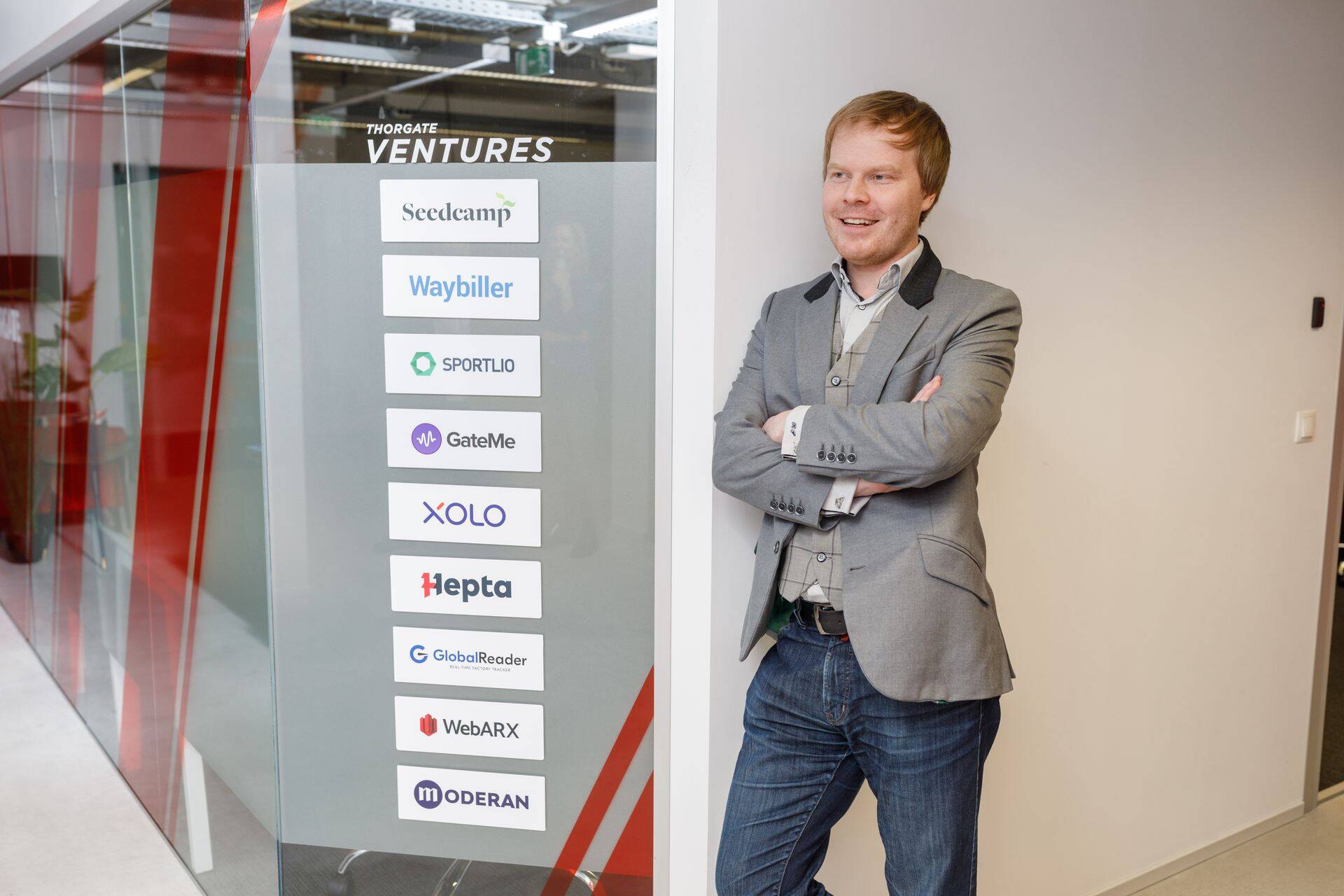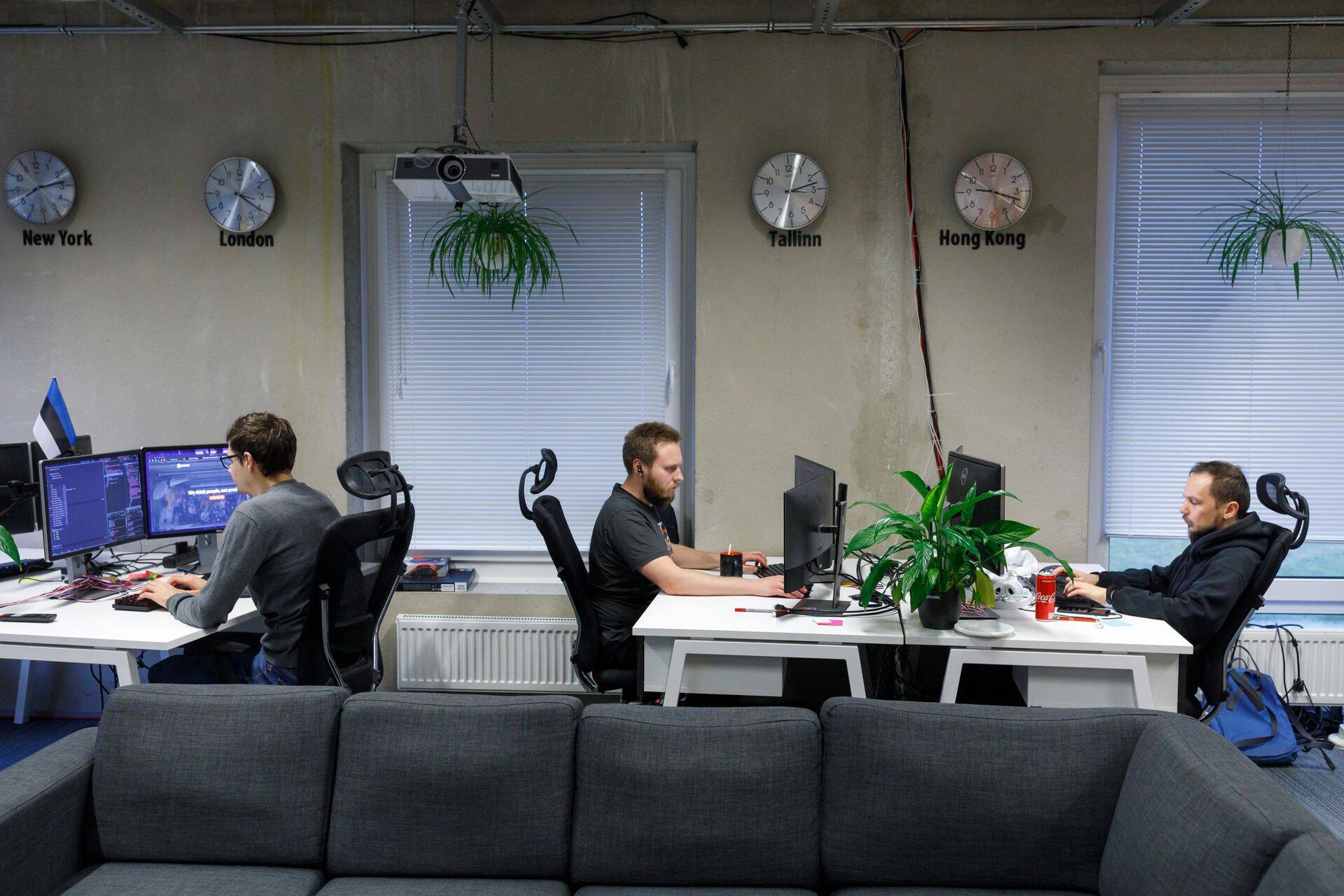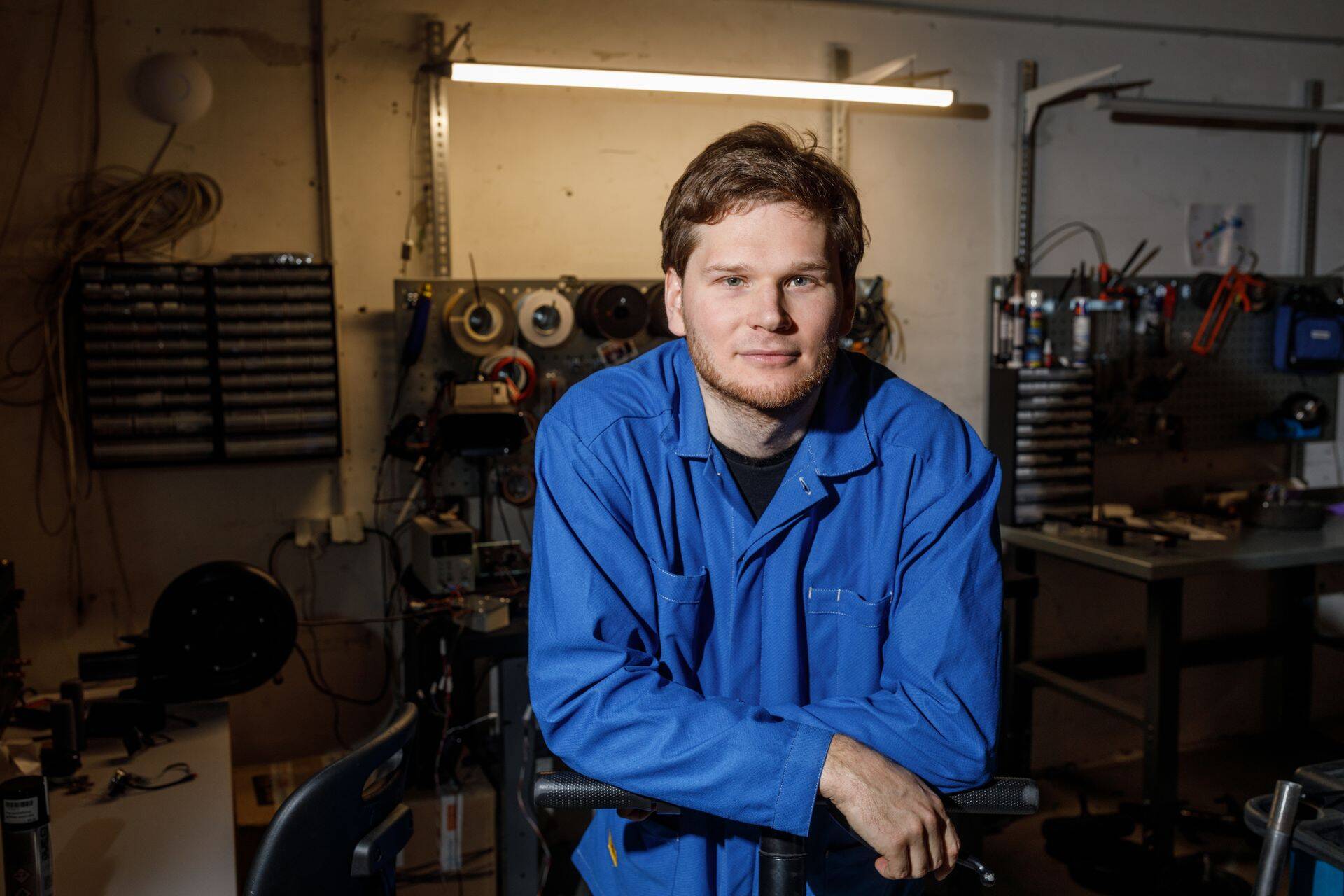Tähelepanu! Artikkel on enam kui 5 aastat vana ning kuulub väljaande digitaalsesse arhiivi. Väljaanne ei uuenda ega kaasajasta arhiveeritud sisu, mistõttu võib olla vajalik kaasaegsete allikatega tutvumine
Developer Shortage Turned into a Bubble
Estonia´s high social tax will have tragic consequences 4-5 years from now, according to Raido Pikkar, CEO of digital product company Thorgate. The jobs of more than 600 people will be lost, who have been paid 3-5 times the average salary.
In Pikkar`s judgment the work of developers will be replaced in one way or another by artificial intelligence. Before that, the highest paying engineering jobs (Head of Product, etc) are taken outside of Estonia as in Thorgate’s case it will be more efficient to hire them elsewhere. “I am a strong patriot to a certain extent. But at some point I will no longer be able to stay as competitive internationally, and there will be pressure to move our activities to Norway, for example, where it is cheaper to keep employing my top workers, as funny as that may sound. We are currently considering Denmark and a few other places which may not seem to be cheaper countries at first glance. But if we add the closeness to our clients and partners to the calculation, it makes it hard to justify Estonia over others. The top 10% of the jobs of the Thorgate team, along with the accompanying employment taxes will thus leave Estonia and move to our satellite offices,“ Pikkar said.
According to Pikkar, the state must understand that entrepreneurs do not talk about imposing a ceiling on the social tax because they are trying to save money. “Quite the opposite: I am one of those entrepreneurs who would be glad to support bringing back the business income tax.“ In Pikkar`s view it could be reasonable to bring back a tax on business profits, to a moderate extent. „We are not a cheap outsourcing country that needs to avoid the tax to push up foreign investments.“ Pikkar stressed that enabling and motivating the creation of high-salaried jobs is not just a favourable factor, but a necessity.
“If this is not undertaken in the near future, all the better jobs will move away from here, and lower-salaried positions – such as junior developers – will simply disappear at some point. That puts us in a bind: if we impose a ceiling on the social tax, we`ll stay afloat, and at some point we will continue to be an e-state, but if we don`t do so, then what kind of talk can there be of an e-state 5 or 10 years from now?
Pikkar added that when and how abruptly the work of developers will begin to be replaced is a separate topic for discussion, but he is firmly convinced that it is coming: “Of course things are not so black and white, but the fact remains that the work of an ordinary developer will one day be just as valuable as some other average job, and it will no longer be driving innovation.“ Therefore, Pikkar claims that we should be considering the possibility that the easier part of a developer`s job should be taken over by artificial intelligence, and the developers could then create more value than they had up to now.
At Thorgate, we keep our team small and lean for a reason. We have set a growth ceiling for the company of 45-50 people and that keeps us looking for smart ways how we can do more with less. And focus on what adds value.
CEO of Thorgate
Thorgate does not bill itself as an IT firm, but as a digital production company, where instead of writing code the focus is more on the product and creative work: “The goal of artificial intelligence for the future is also to make the best possible product, but to build the best product, one needs creative thinking. You have to understand things that the computer will not be able to understand some time from now: business trends, the ways people think, brands, PR, and the technical knowledge that goes along with it.“
Their developers are also responsible for doing their work as wisely as possible. “At Thorgate ideally the goal of the developer is not to write code,“ Pikkar added.
Hetkel kuum
When subcontractors in the other countries lose their jobs will not affect our economy and we have mitigated our risks in this sense, Pikkar said. "But it is sad that in society as a whole and in Estonia we have not alleviated these risks and the government does not realize that people in these top 10% technical job positions aren’t paid 2-3 times average salaries, CTOs and Product Managers often earn five times the average salary."
According to Pikkar, for example, Italy is one of the countries that has made this mistake and gone crazy with social tax. "Northern Italy is actually a very decent center for innovation, but if you ask a technology company whether they would consider moving their production or headquarters there, no one will say yes."
In Pikkar`s view, IT companies that are built like IT-workers` farms with a focus on a large number of workers will eventually come to a point where they will be reduced to a minimum; there will be cuts, and at some point half or even 75% of such jobs will disappear.
However, we mostly hear it said that there is an ongoing deficit of developers, and everybody wants to hire more of them. For Pikkar, this is not exactly true. He explains that if you have a well-funded startup, you have the chance to hire developers, and instead of effectiveness you will think about company culture and how to be attractive in order to find the one most well-known developer out of five. “In this market, most of what happens is a bit like a bubble effect. Yes, more developers are needed, but hiring them is quite inefficient today as many hire them for company culture, just in order to expand. They either have a big load of venture capital or clients` money, on the basis of which they can make quick decisions that are not, in the end, efficient,“ he said.
For Pikkar the time will come when those heaped-up developers that have been hired will need to be replaced either by computers or artificial intelligence. „That's the direction things are going.“
Pikkar also hopes that workers will clue in at the right moment and move on to different kinds of jobs, where they are not just doing basic-level programming. “For example, if all an IT person knows is IT, that's fine, but if they understand something about genetics and medicine, if they understand production and production systems and combine the skills of an IT engineer with another , they will will have plenty to do in professionally for the next 20-40 years. IT as such will not disappear,“ he stated.
A downturn will bring cleansing
In order not to remain a rigid IT company, Thorgate Ventures, which belongs to the Thorgate Group, is also investing in new businesses, from which Thorgate itself can gain significant skills and knowledge about what is currently happening in the market. As economic growth slows down, Pikkar plans to raise Thorgate`s investments in startups even more. “For some time we ourselves have been growing aggressively so that the group can get stronger, and in the last year we have created two new funds. It is very likely that this year we will focus on gathering more resources so as to invest even more next year, or the year after that, when others can`t.“
Pikkar explained that when there is a danger of a downturn, effective solutions, mainly IT solutions, become very important for businesses. The slowing down of economic growth could also help cleanse the market, and will become easier to choose startups to invest in from among the strongest who have remained.
„It is sad to say, but in that respect, economic recession is a positive thing for IT-companies, digital product companies, and venture capitalists“, Pikkar stated. “A recession can also cleanse the world of venture capital and startups of muddle, muffin apps, and meaningless investors.“
FoundME is inviting you on board of a weekly newsletter that will bring you the news and opinion stories from the Estonian startup scene. - Subscribe to FoundME newsletter HERE!
Seotud lood
Iga idu saab alguse ideest. Aga esimene asi, mida teised märkavad, pole sinu pitch deck ega MVP – vaid domeen. See on sinu startup’i esimene pitch. See on see, millega astud oma tiimi ette Slackis, jagad ideed angel investorile LinkedInis või paned selle Product Huntis avalikuks. Kui domeen kõlab nõrgalt, kõlab nõrgalt ka idee.
Enimloetud
Viimased uudised
Hetkel kuum
Liitu uudiskirjaga
Telli uudiskiri ning saad oma postkasti päeva olulisemad uudised.
Tagasi FoundMe esilehele












